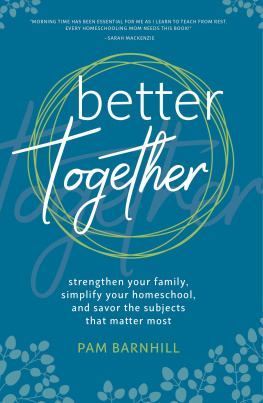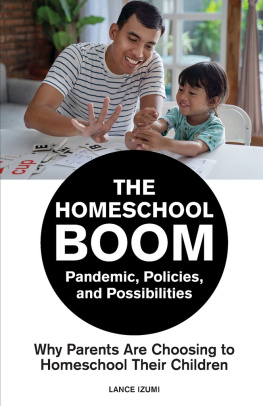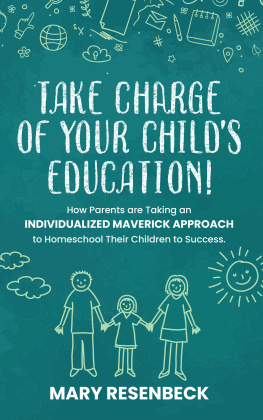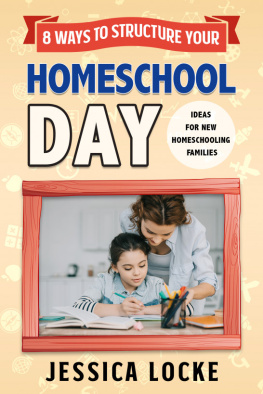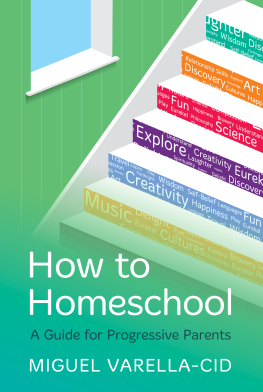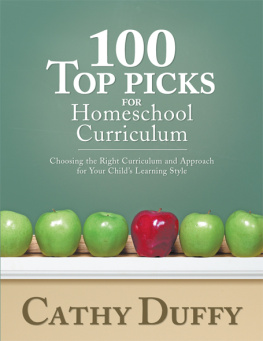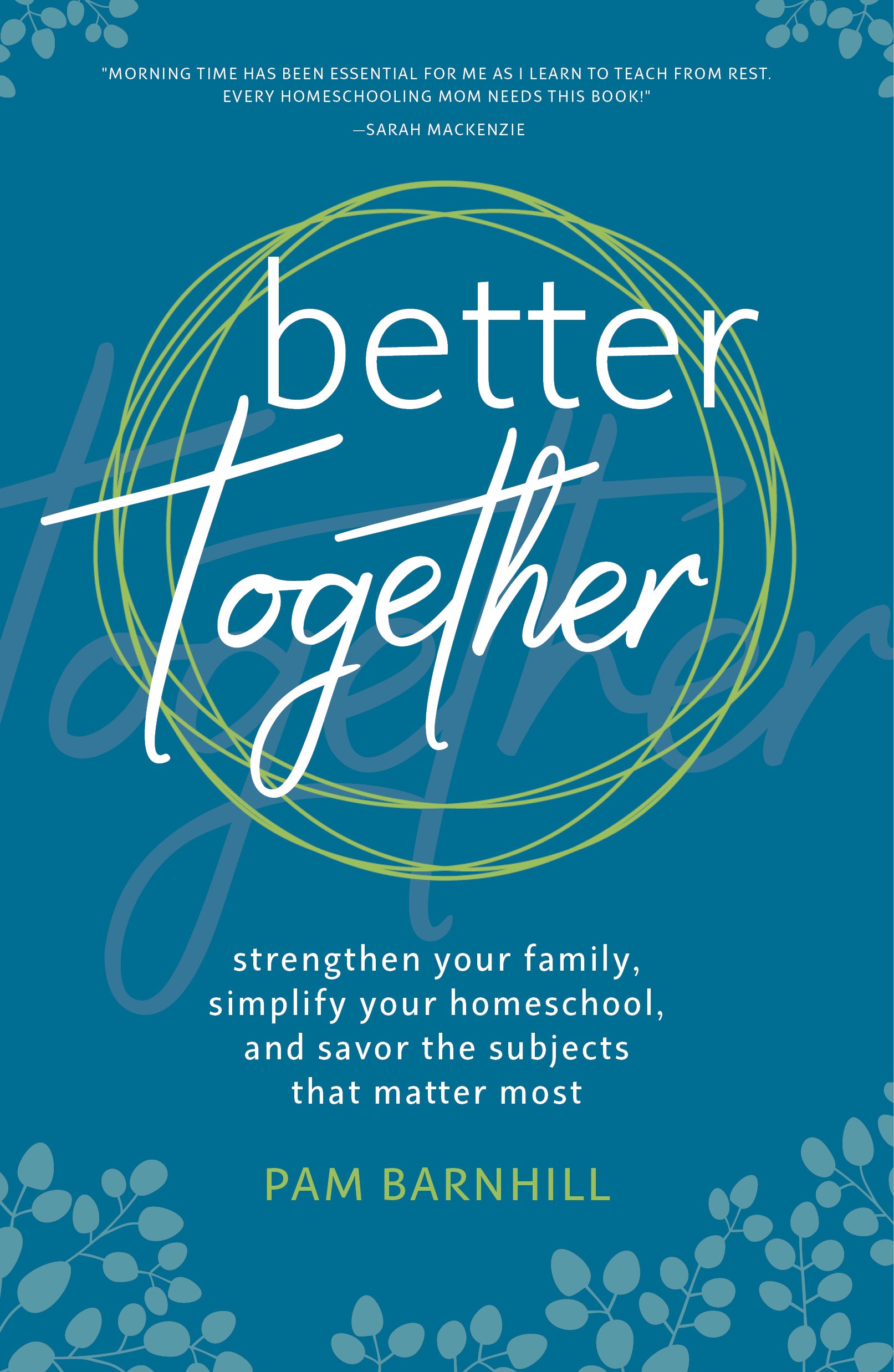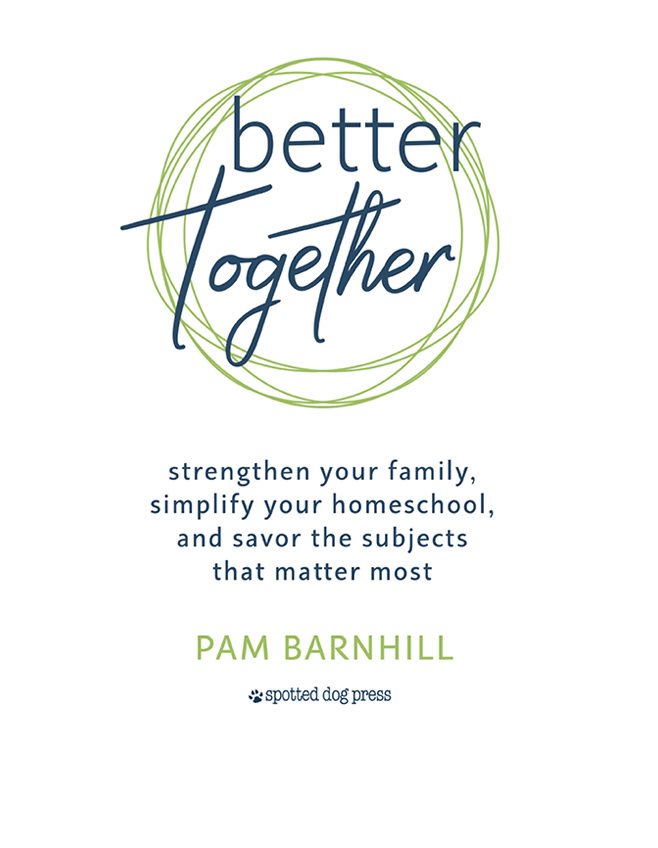All rights reserved. This book or any portion thereof may not be reproduced or used in any manner whatsoever without the express written permission of the publisher except for the use of brief quotations in a book review.
Foreword
While reading Pams book on Morning Time, it occurred to me that I do not have nine children; I have ten. And I dont mean my husband, even though he is quite nervous that with no more children to homeschool I will commence teaching him. No, I feel that my tenth child, the darling I anxiously watch from afar to see how it flourishes, is Morning Time.
To see the idea of Morning Time slowly take root over many long years and finally to reproduce itself in a new generation is astounding to me.
To say that I created Morning Time because we par-ticipated in it for so many years is like saying I created breakfast because we had oatmeal every day. Still it is a much-loved adopted child, and to see it thrive in old and new ways is gratifying. I think this is happening now, after so many years, just because it is so organic, so natural. If you are in the business of ordering affections ( ordo amoris ) then Morning Time is the most obvious, if not the easiest, way to go.
Twenty-seven years ago Timothy (my oldest) and I repeated his Awana verse, sang a Bible song, read nursery rhymes, and read aloud all morning long just because it was so much fun. Then we got up the next day and did it again. We never did stop.
This past school year was our last official year of Morning Time. Andrew and Alex and I got up many mornings, prayed together, read poems, diagrammed sentences, then read The Iliad and The Odyssey together. It was a fitting way to end a quarter century of family tradition.
Only it is not the end. If Pam is right and we are not merely teachers but fellow travelers, then it makes sense that Morning Time will continue for me. I will still get up and seek the Lord in His Word, sing His praises, and commence praying for my husband, my nine children, their four spouses, and my ten grandchildren. Many days I will read a poem, and most days I will read a few chapters from a few books. Turns out Morning Time might have just been an excuse for me to learn after all. Nothing has changed except that no toddler interrupts me these days, except when the grandchildren are visiting. This week two little girls have kept me from my devotions but not from participating in a liturgy of love. As I sat reading aloud to them from the book my grandmother read aloud to me, I couldnt help but get choked up. Love is a liturgy. It means something. I must tell someone.
People used to ask me to write a book about Morning Time. For awhile I thought maybe I would, but then I didnt, and life got complicated. Then one day I looked up and I was not the only one. The burden was lifted. Other womenwriters, mothers, teacherswere writing and living out their own Morning Times. Sarah MacKenzie breathed new life into my posts, and now Pam has written this helpful book. And helpful it is. It even made me a little sad that I couldnt do it all over again. However, Pams reminder that I am still a learner encouraged me.
Pam has said so much that I would say and then some. I love reading about Morning Time from her fresh perspective. So much of her experience is common to my family. Once upon a time I had three little children and we had Morning Time just like Pam! Then there were nine, and then eight, and then seven, and so on just like an Agatha Christie mystery. And now suddenly, so suddenly, just two are left at home but going on to other schools of life. Yet Morning Time lives on in my life, in Pams family, and maybe in your family too. That brings me great joy. I have no greater joy than to hear my children walk in the truth (I John 1:4).
Thanks, Pam, for reminding me of the fun I had with my children once upon a time. May the fruit last long after you and I are gone.
Cindy Rollins
Summer 2015
Preface to the first edition
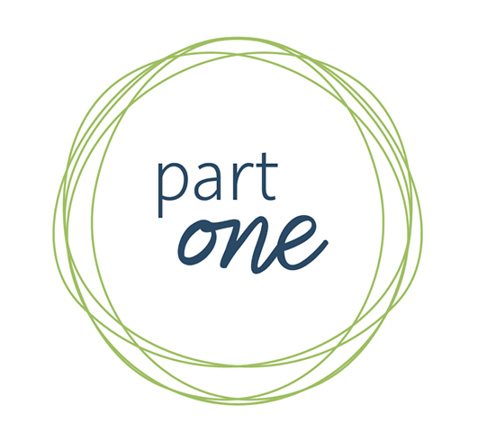
1. A Homeschool Wish List
When I first became interested in the concept of homeschooling my kids, I rarely doubted that I could actually do it. I mean, I had taught for years in inner-city high schools and middle schools. I won awards, gave workshops for other teachers, and had former students who later told me that my classes were the ones that had most prepared them for the real world. While I wasnt the flashiest teacherin fact, looking back, I can think of over a million ways I could have been a much better oneI was competent and confident in my ability to do my job. Homeschooling would be no different, I thought.
Then I actually started homeschooling. While teaching a class of high school freshmen how to write compelling news stories is no easy feat, I found that homeschooling is an entirely different emotional experience. As a public school teacher, I had been committed to my students. Being solely responsible for the education of your own child, though, is the kind of thing that keeps you up at nightmany nights.
That is not to say that doing the job of homeschoolingand it is a jobis not worth the sleeplessness. The rewards of getting to spend your days as a family, experiencing the moments when wonder and learning collide, and allowing your kids time to play and be kids, far outweigh the hours spent working and worrying.
I have always had an affinity for hearing other peoples homeschooling stories. I love the day-in-the-lifestyle vignettes on blogs that give a glimpse into what others homeschool days look like. A few years ago I turned this interest into a podcast called The Homeschool Snapshots Podcast . Each 30-minute episode consists of about 20 minutes when I ask the homeschooler who is being the guest that day the very same questions on each show. Who is your favorite homeschool guru? What would you tell your younger self? How do you go about salvaging a bad homeschool day? I dont do this because I cant think of anything else to ask, but instead I do it for reassurance.
The message I want parents to get from listening to the show is that there is no single right way to homeschool. Different families will thrive under different circumstances or will follow different educational philosophies. Yet we are so much more alike than we are different. We have similar hopes and dreams for our kids and are striving for similar goalseducating healthy, happy, productive adults who are well-adjusted to live in this fallen world. We also have similar struggleslike those annoying, all-too-frequent, bad homeschool days.
Today is Not the Definition of Your Homeschool
Kortney Garrison spent two-and-a-half years serving indigenous people in Suriname. Now armed with a library card and her own intense curiosity, she homeschools her three young kids in the Pacific Northwest. She reminded me in a recent Snapshots interview that one day is not the sum total of your homeschool experience, even though it can very much seem like it when you are in the muddle. Whether (today) is a really amazing day or a less amazing day, one day doesnt make or break you. We are here for the long haul, and this is a big journey that we are on, Kortney said.

